SOARING FOOD PRICES
입력 2022.05.12 (15:08)
수정 2022.05.12 (16:45)
읽어주기 기능은 크롬기반의
브라우저에서만 사용하실 수 있습니다.
[Anchor Lead]
Oil is not the only commodity to become more and more expensive these days. Prices of food are also soaring. Even prices of fisheries, which used to be quite stable, are rising now, prompting the government to tap 1800 tons of reserves. With prices of grain also surging, securing food sovereignty is becoming more important than ever.
[Pkg]
The shelves of this supermarket are being filled with pollack and squid. The shelf nearby is full of dried fisheries. These are the fishery reserves the government released to the market on Wednesday.
[Soundbite] Sohn Sang-hoon(Supermarket Manager) : "Prices are about 30 percent lower, almost as low as wholesale prices. Customers can tell at once that they can buy more for less."
Prices of imported seafood have soared due to the protracted war in Ukraine. The price of salmon at the Noryangjin Fish Market nearly doubled on-year, while the price of dried pollack spiked nearly 50 percent.
[Soundbite] Choi Hye-sook(Seoul Resident) : "Hairtail is very expensive. Mackerel pike, mackerel and dried pollack, which ordinary people enjoy, also cost a lot more now. It's very burdensome."
Prices of grain are also through the roof. Import prices of wheat and corn have spiked more than 40 percent. Korea's food self-sufficiency rate is at around 46 percent. Every administration promised to raise the target rate, but the actual number keeps going down. This makes South Korea vulnerable when international food prices surge or when other countries weaponize food.
[Soundbite] Kim Jong-jin(Korea Rural Economic Inst.) : "Russia is weaponizing food. If the situation gets worse, we won't be able to secure grains, which will jeopardize our food sovereignty and food security."
Some countries are restricting grain exports because of the dwindling harvests and climate change. Measures to raise food self-sufficiency rate are urgently needed now more than ever.
Oil is not the only commodity to become more and more expensive these days. Prices of food are also soaring. Even prices of fisheries, which used to be quite stable, are rising now, prompting the government to tap 1800 tons of reserves. With prices of grain also surging, securing food sovereignty is becoming more important than ever.
[Pkg]
The shelves of this supermarket are being filled with pollack and squid. The shelf nearby is full of dried fisheries. These are the fishery reserves the government released to the market on Wednesday.
[Soundbite] Sohn Sang-hoon(Supermarket Manager) : "Prices are about 30 percent lower, almost as low as wholesale prices. Customers can tell at once that they can buy more for less."
Prices of imported seafood have soared due to the protracted war in Ukraine. The price of salmon at the Noryangjin Fish Market nearly doubled on-year, while the price of dried pollack spiked nearly 50 percent.
[Soundbite] Choi Hye-sook(Seoul Resident) : "Hairtail is very expensive. Mackerel pike, mackerel and dried pollack, which ordinary people enjoy, also cost a lot more now. It's very burdensome."
Prices of grain are also through the roof. Import prices of wheat and corn have spiked more than 40 percent. Korea's food self-sufficiency rate is at around 46 percent. Every administration promised to raise the target rate, but the actual number keeps going down. This makes South Korea vulnerable when international food prices surge or when other countries weaponize food.
[Soundbite] Kim Jong-jin(Korea Rural Economic Inst.) : "Russia is weaponizing food. If the situation gets worse, we won't be able to secure grains, which will jeopardize our food sovereignty and food security."
Some countries are restricting grain exports because of the dwindling harvests and climate change. Measures to raise food self-sufficiency rate are urgently needed now more than ever.
■ 제보하기
▷ 카카오톡 : 'KBS제보' 검색, 채널 추가
▷ 전화 : 02-781-1234, 4444
▷ 이메일 : kbs1234@kbs.co.kr
▷ 유튜브, 네이버, 카카오에서도 KBS뉴스를 구독해주세요!
- SOARING FOOD PRICES
-
- 입력 2022-05-12 15:08:22
- 수정2022-05-12 16:45:26
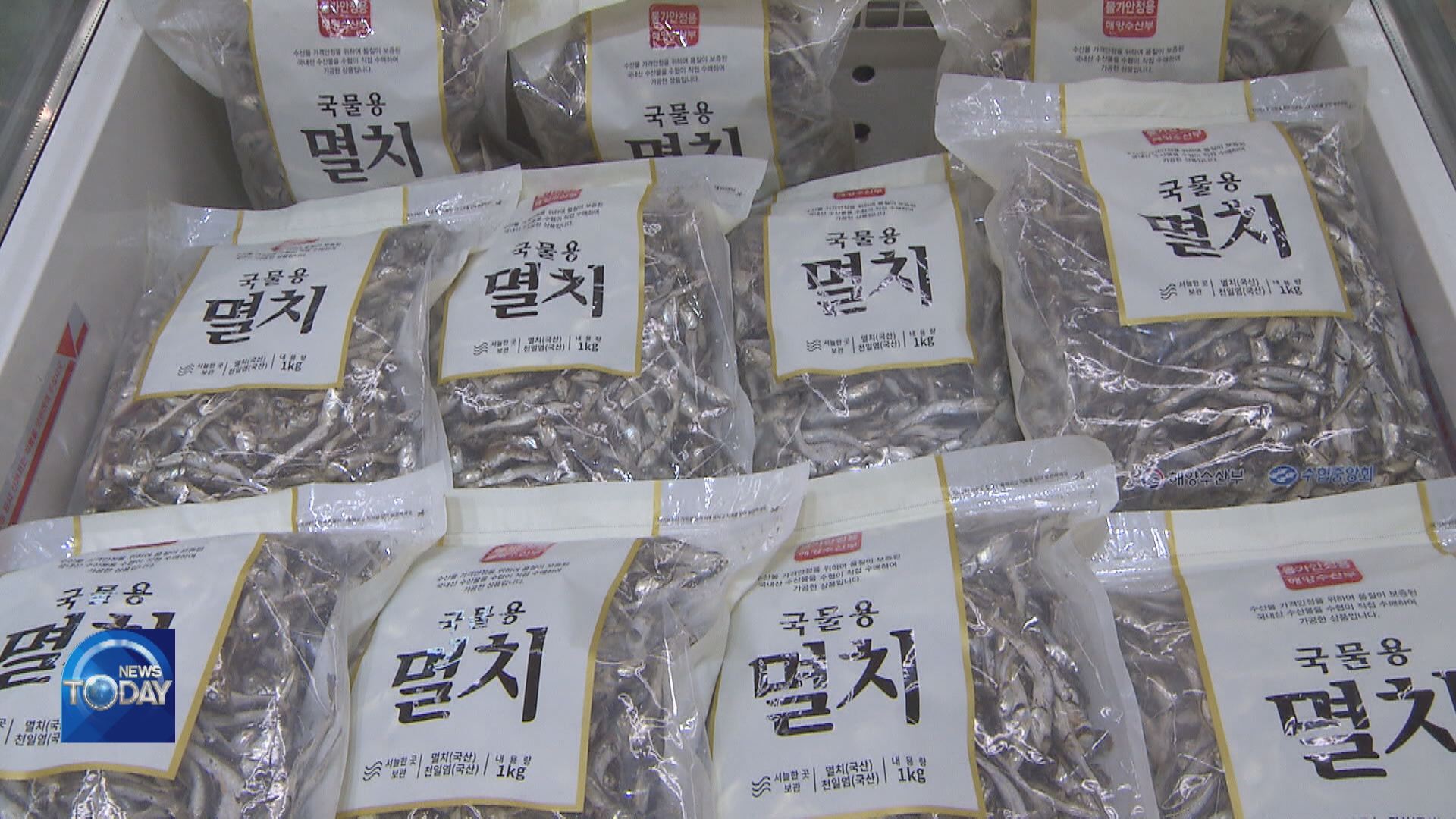
[Anchor Lead]
Oil is not the only commodity to become more and more expensive these days. Prices of food are also soaring. Even prices of fisheries, which used to be quite stable, are rising now, prompting the government to tap 1800 tons of reserves. With prices of grain also surging, securing food sovereignty is becoming more important than ever.
[Pkg]
The shelves of this supermarket are being filled with pollack and squid. The shelf nearby is full of dried fisheries. These are the fishery reserves the government released to the market on Wednesday.
[Soundbite] Sohn Sang-hoon(Supermarket Manager) : "Prices are about 30 percent lower, almost as low as wholesale prices. Customers can tell at once that they can buy more for less."
Prices of imported seafood have soared due to the protracted war in Ukraine. The price of salmon at the Noryangjin Fish Market nearly doubled on-year, while the price of dried pollack spiked nearly 50 percent.
[Soundbite] Choi Hye-sook(Seoul Resident) : "Hairtail is very expensive. Mackerel pike, mackerel and dried pollack, which ordinary people enjoy, also cost a lot more now. It's very burdensome."
Prices of grain are also through the roof. Import prices of wheat and corn have spiked more than 40 percent. Korea's food self-sufficiency rate is at around 46 percent. Every administration promised to raise the target rate, but the actual number keeps going down. This makes South Korea vulnerable when international food prices surge or when other countries weaponize food.
[Soundbite] Kim Jong-jin(Korea Rural Economic Inst.) : "Russia is weaponizing food. If the situation gets worse, we won't be able to secure grains, which will jeopardize our food sovereignty and food security."
Some countries are restricting grain exports because of the dwindling harvests and climate change. Measures to raise food self-sufficiency rate are urgently needed now more than ever.
Oil is not the only commodity to become more and more expensive these days. Prices of food are also soaring. Even prices of fisheries, which used to be quite stable, are rising now, prompting the government to tap 1800 tons of reserves. With prices of grain also surging, securing food sovereignty is becoming more important than ever.
[Pkg]
The shelves of this supermarket are being filled with pollack and squid. The shelf nearby is full of dried fisheries. These are the fishery reserves the government released to the market on Wednesday.
[Soundbite] Sohn Sang-hoon(Supermarket Manager) : "Prices are about 30 percent lower, almost as low as wholesale prices. Customers can tell at once that they can buy more for less."
Prices of imported seafood have soared due to the protracted war in Ukraine. The price of salmon at the Noryangjin Fish Market nearly doubled on-year, while the price of dried pollack spiked nearly 50 percent.
[Soundbite] Choi Hye-sook(Seoul Resident) : "Hairtail is very expensive. Mackerel pike, mackerel and dried pollack, which ordinary people enjoy, also cost a lot more now. It's very burdensome."
Prices of grain are also through the roof. Import prices of wheat and corn have spiked more than 40 percent. Korea's food self-sufficiency rate is at around 46 percent. Every administration promised to raise the target rate, but the actual number keeps going down. This makes South Korea vulnerable when international food prices surge or when other countries weaponize food.
[Soundbite] Kim Jong-jin(Korea Rural Economic Inst.) : "Russia is weaponizing food. If the situation gets worse, we won't be able to secure grains, which will jeopardize our food sovereignty and food security."
Some countries are restricting grain exports because of the dwindling harvests and climate change. Measures to raise food self-sufficiency rate are urgently needed now more than ever.
이 기사가 좋으셨다면
-
좋아요
0
-
응원해요
0
-
후속 원해요
0











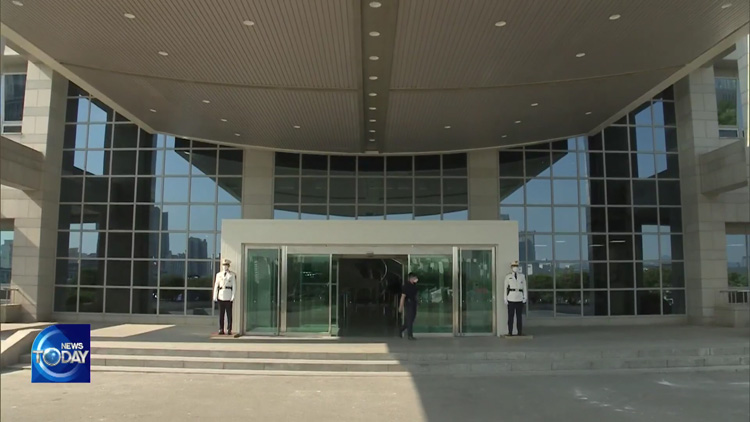

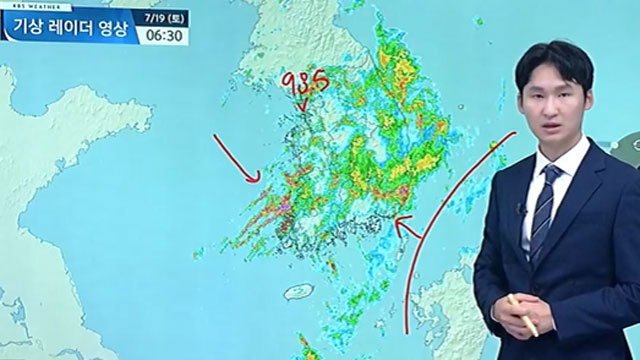
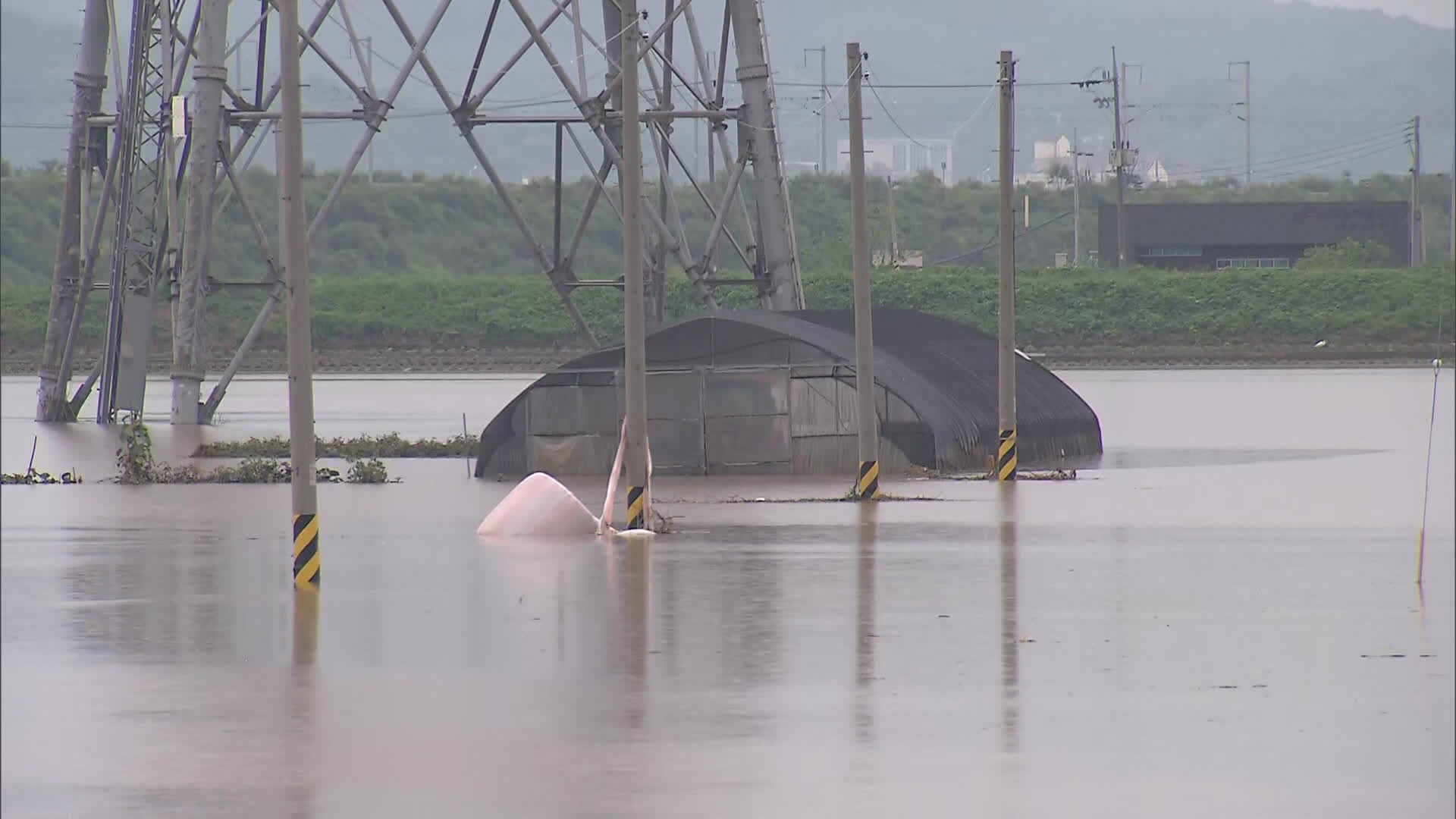
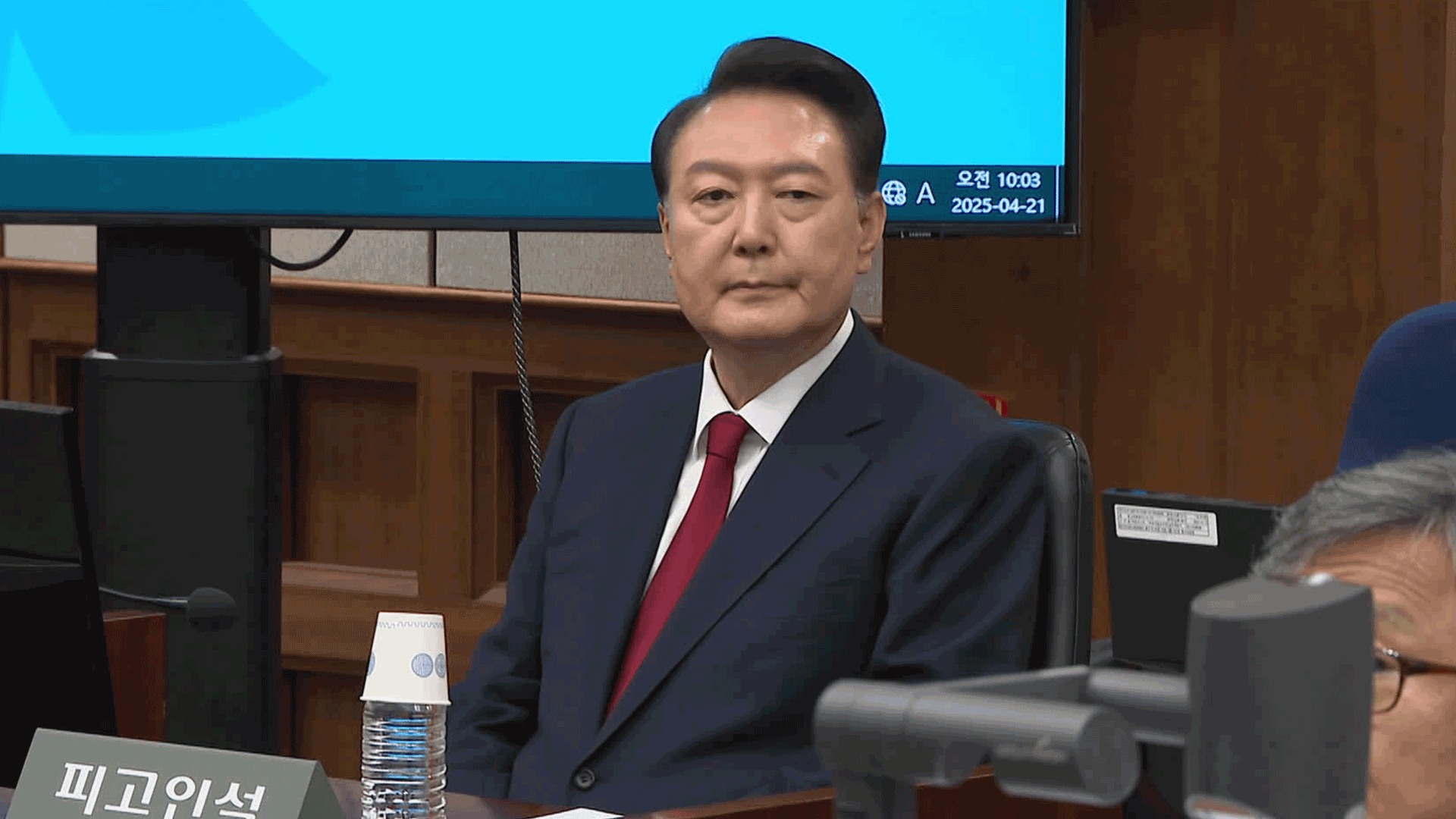

이 기사에 대한 의견을 남겨주세요.